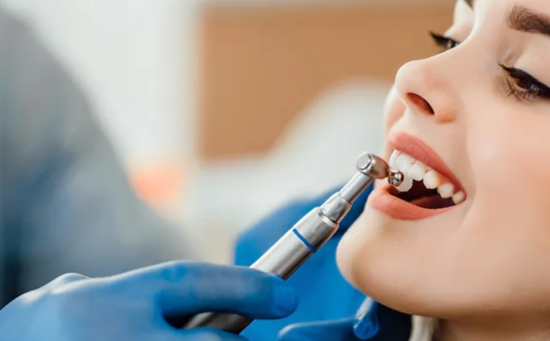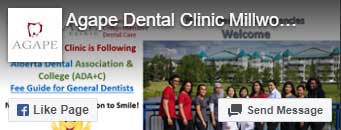
When was the last time you went in for a dental cleaning? Last week? A few months ago? As you’ve no doubt heard before, dentists frequently recommend that patients come in for a dental checkup and cleaning every 6 months or so.
Teeth cleaning (also known as prophylaxis, literally a preventative treatment of a disease) is a routine procedure that is key for the health of your smile. Its main goal is to remove plaque and tartar buildup on your teeth and under your gum line that may develop even with careful brushing and reduce your chances of cavities, gum disease, or eventual tooth loss. Dental cleanings also give your dentist and dental hygienist the chance to stay on top of your oral health and, should anything more serious manifest, it can be remedied quickly.
Are you interested in scheduling your next dental cleaning? If so, reach out to our dental clinic in Millwoods today!
What Dental Cleanings Include
An oral health exam and cleaning fall under the category of preventative dentistry. This branch of care focuses on, as the name clearly indicates, preventing an array of problems from manifesting that can damage the structure, appearance, and functionality of your teeth, gum tissues, and jawbone.
A routine dental cleaning involves the removal of hard and soft deposits (plaque and calculus) above, around, and just below the gumline by scaling [a technique that your dental professional uses to get rid of debris from the root surfaces of your teeth],” says Dianne Sefo, a clinical associate professional and chair of dental hygiene and denting assisting at NYU College of Dentistry in New York City.
Typically, a routine checkup and a cleaning are combined into one appointment. It lasts around 60 minutes and then you’ll be free to go about the rest of your day.
The different stages of this process are outlined below:
Step 1: The checkup.
Most teeth cleanings are performed by a registered dental hygienist. The actual cleaning process starts with your hygienist in Millwoods doing a physical exam of your entire mouth. A small angled mirror is used to check around your teeth and gums for any signs of gingivitis (inflamed gums) or other potential concerns. The hygienist will class in a dentist if major problems are detected and to ensure it is okay to continue.
Step 2: Scraping the plaque and tartar from your smile.
“Soft and hard deposits, known as plaque and calculus, are removed from the surfaces of your teeth,” says Sefo. “This is done by a process known as scaling. Scaling can be done manually an by power-driven scalers.”
Step 3: Polishing, flossing, and rinsing.
“Remaining plaque and stains on your teeth are then removed by polishing with an abrasive paste,” she says. “This gritty paste can get stuck between teeth, so polishing is followed by flossing. If needed, a fluoride treatment is done at the end of the appointment to help keeo your teeth strong and prevent cavities.”
Step 4: Fluoride.
Fluoride is an essential part of your cleaning since it is extremely effective at preventing cavities from forming. This treatment can be administered in a few ways: 1) it can be a varnish that’s painted on your teeth, 2) a liquid you gurgle, or 3) a foam that’s squirted into trays and placed over your smile.
The fluoride sits on your teeth for a minute, and then you can rinse again.
If you have questions or concerns about any of this, make sure you let your dentist know. You deserve to be relaxed during your appointment.
Benefits of Receiving a Dental Cleaning
Taking the time to see a dental professional is advantageous for patients both younger and older. Some of these benefits are:
- Your smile will be brighter! Your teeth are cleaned as well as polished, leaving your smile glowing once you leave the clinic.
- Regular appointments can help prevent gum disease.
- Oral cancer screenings.
- You’re at a lower risk of developing other conditions like heart disease or experiencing a stroke.
- Your dentist will be able to tell you if you need further treatment like a filling, crown, or root canal.
- Cleanings and exams are usually covered or at least partially covered by most health insurance plans.
- Prioritizing your dental hygiene now will help you now and in the future.
If you haven’t had your regular dental cleaning, now is a great time to schedule one. Almost all dental insurances cover dental checkups and cleanings. Take advantage of your dental benefits to maintain good oral health by using your dental benefits before they expire at the end of the calendar yet. Maximize your dental insurance benefits and minimize out of pocket expenses.
If you’re looking to schedule an appointment for a dental cleaning in Millwoods, then look no further than our community dental practice! Our staff is eager to welcome you to our little family and aid you on your unique dental journey.
Phone us, fill out the form on our website, or drop by our location to get started. We hope to see you very soon!

